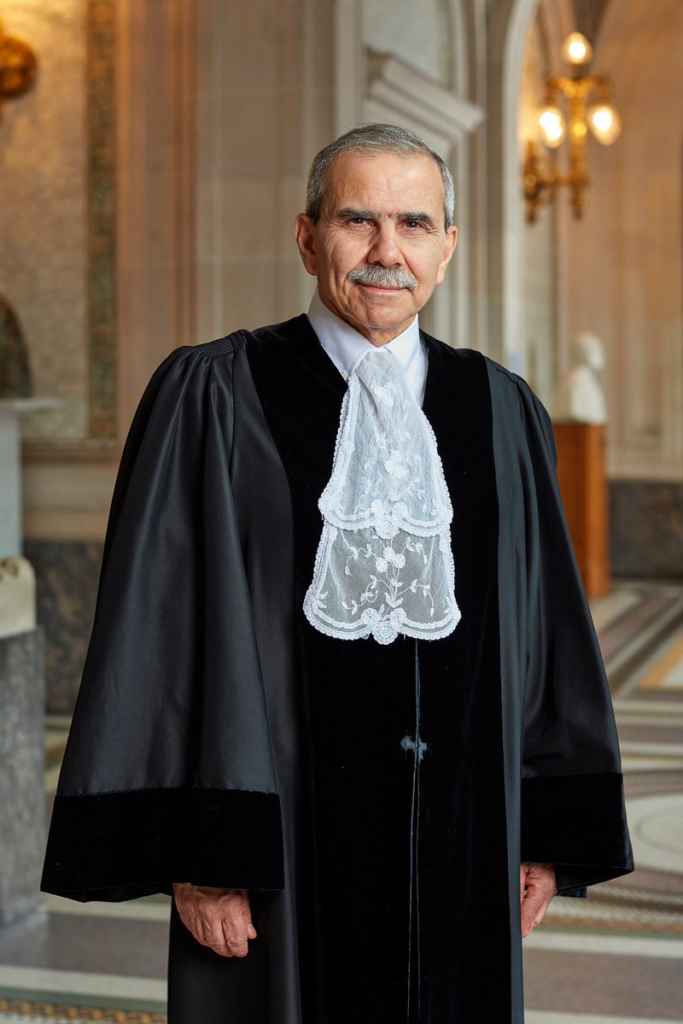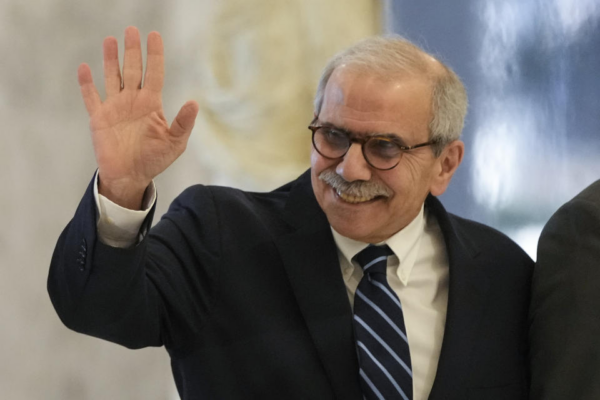Lebanese Prime Minister-designate Nawaf Salam speaks to journalists after his meeting with Lebanese President Joseph Aoun at the presidential palace in Baabda, east of Beirut, Lebanon, Tuesday, Jan. 14, 2025. (AP Photo/Hassan Ammar) ASSOCIATED PRESS
By : Ya Libnan Editorial Board
Lebanon’s newly designated Prime Minister, Salam, has offered a beacon of hope to a nation long entrenched in political and economic crises. In his inaugural address, Salam pledged to focus on building a modern state, fostering unity, and addressing the devastation wrought by the yearlong war between Hezbollah and Israel. His promises are ambitious yet critical for a country yearning for reform and stability.
A Vision for a Modern Lebanon
Salam’s vision centers on modernizing Lebanon, rebuilding its shattered infrastructure, and revitalizing its crumbling economy. Decades of corruption, political paralysis, and mismanagement have left the country in dire straits. Once the financial hub of the Middle East, Lebanon’s banks are now barely functional, and the state electricity company is a source of national shame despite massive subsidies over the years. Salam’s commitment to implementing a comprehensive reform agenda is a vital first step toward addressing these deep-seated issues.
Key to Salam’s strategy is the full implementation of U.N. Security Council resolutions related to the Israel-Hezbollah conflict. This includes restoring state authority across all regions of Lebanon, a direct challenge to the entrenched influence of Hezbollah, which operates as a state within a state. Salam has expressed a clear intention to establish the state’s dominance through its legitimate forces, emphasizing the need for law and order as the foundation for Lebanon’s rebirth.
Rebuilding Trust and Unity
Salam’s declaration that he will not marginalize any group underscores his effort to unify Lebanon’s fragmented political landscape. By extending a hand to all factions, including Hezbollah, he aims to bridge the divides that have long hindered national progress. However, the task ahead is daunting. Hezbollah’s dual role as a political party and an armed militia loyal to Iran poses a significant challenge to Salam’s vision of a sovereign and modern Lebanon. The question looms: will Hezbollah embrace this new chapter, or will it continue to prioritize its regional agenda over Lebanon’s national interests?
Challenges on the Road to Reform
The scale of the challenges facing Lebanon cannot be overstated. The economic collapse has eroded public trust, with many citizens losing their life savings amid the banking sector’s failure. Meanwhile, essential services remain in disarray, and the scars of the Hezbollah-Israel war continue to weigh heavily on the nation.
In this context, Salam’s pledge to build a modern economy resonates deeply. By focusing on reconstruction, economic diversification, and anti-corruption measures, he hopes to restore confidence among Lebanese citizens and international stakeholders. Yet, these efforts will require political consensus, substantial external support, and a commitment from all factions to prioritize Lebanon’s recovery over partisan and external interests.
The Role of Hezbollah in Lebanon’s Future
As Salam charts a path forward, Hezbollah’s response will be pivotal. The group has already begun efforts to rebuild its arsenal following the war, raising concerns about its priorities. Salam’s call for unity and reform presents Hezbollah with a choice: to align with a vision for a new Lebanon or to continue acting as a proxy for Iran, potentially dragging the country into further conflict and isolation.

The hope is that Salam’s leadership will inspire a shift in Hezbollah’s stance, encouraging it to support national interests and the rebuilding process. For this to happen, Salam must navigate the delicate balance of engaging Hezbollah without compromising on the principles of state sovereignty and reform.
A Glimmer of Hope

Salam’s optimism is a refreshing contrast to Lebanon’s bleak reality. His declaration that “now is the time to start a new chapter” reflects the aspirations of a nation desperate for change. By extending his hands to all factions and committing to reforms, Salam is signaling a new approach—one rooted in collaboration, accountability, and a vision for a brighter future.
As Lebanon stands at this critical juncture, the international community and the Lebanese people must rally behind Salam’s efforts. The road ahead will be fraught with challenges, but with determination and collective will, Lebanon can overcome its past and build a modern, sovereign, and prosperous state. Whether Hezbollah chooses to be a partner in this journey or an obstacle will define the nation’s trajectory for years to come.

